Photographs: Reuters
Conquering Mount Everest has become easier with modern technology and Sherpas ready to 'help' climbers. This annual throng has devalued the sport, says Amrita Singh
When the climbing season starts for Mount Everest in March next year, a 59-year-old Indian will join the crowd of people trying to conquer the world's tallest mountain. He is hoping to become the oldest Indian to summit Everest. These days he is training to get in shape for the climb, which means, among other things, five hours of walking daily, a couple of hours of jogging and weight training. He is also an avid cyclist, which perhaps has motivated him to climb Everest. He doesn't wish for his name to be published till he successfully scales the mountain.
Come December and another Everest enthusiast, Pramod Sigla, who owns a travel agency in Delhi, will get set for his mountain adventure. But considering the costs involved he won't do the full climb -- he will just go till the base camp.
Click on NEXT for more...
At the top of the world, it's getting kinda crowded!
Photographs: Reuters
Climbing Everest is now akin to a stroll in the park. Recent pictures published in the National Geographic magazine show a stampede during the climb to the summit. The base camp seems to be as crowded as Chandni Chowk.
During the recently concluded climbing season, more than 30 Indians made it to the summit; among them was 15-year-old Raghav Juneja, who became the youngest Indian to climb the mountain. Among others, a diabetic made it, so did an amputee and an 80-year old Japanese!
Stepping on the peak seems to be on the bucket list of many people these days. With advancement in technology and guided tours, more and more people are paying their way to the top. According to National Geographic, in 1998, 15 per cent of the attempts were successful. But in 2012, the success rate had climbed to 56 per cent.
As more and more people follow in the footsteps of trusted guides to the top of the mountain, some people have started complaining of hours-long wait on the way to the peak. These days, it is not unusual to find traffic gridlocked at the final bend before the peak -- a particulalry steep climb named after Sir Edmund Hillary. Has the swarm of people devalued Everest?
Click on NEXT for more...
At the top of the world, it's getting kinda crowded!
Photographs: Reuters
Everest for long has been the preserve of seasoned mountaineers. Once it was determined to be the highest peak on earth in 1852, "it required the lives of 24 men, the effort of 15 expeditions and the passage of 101 years" before the summit was finally attained, wrote Jon Krakaeur in the in his 1997 bestseller, Into Thin Air.
The early Everesters had to trek from Darjeeling and across the Tibetan plateau to reach the foot of the mountain in Nepal. By the mid-1900s, one could take a flight to Kathmandu and then trek to the base camp which is 20,000 feet above sea level. Their equipment was pathetic by current standards and the skills of weather forecasting were virtually non-existent.
"Things have certainly changed," says Colonel Neeraj Rana, who has just returned after taking a group of school children to the peak.
But he adds, "Climbing is just as difficult. The only difference is that now you hear of more people attaining success."
Click on NEXT for more...
At the top of the world, it's getting kinda crowded!
Photographs: Reuters
Lighter equipment, descenders and titanium crampons (shoe strap-ons help one get a better grip on ice) have made things easier. Colone Rana says anyone with commitment and basic fitness can climb the mountain after 30-35 days of training.
The initial climb is also less ardous. Climbers can leapfrog, walking through some difficult terrain, and take a chopper from the outskirts of Kathmandu to Lukla, from where the trek to the base camp begins. It takes about 10 days to make it to the base camp in contrast to 31 days earlier. The stretch from Lukla to Namche Bazaar and Lobjue and then finally to the base camp has no trace of vegetation, but on the way one can find all the trappings of modern civilisation -- mobile phones, dish TV and curio shops.
"At the base camp one lives in comfortable camps or inns (called tea houses) which are run by the locals," says Sigla, who went there last year as well. In that sense Everest is no longer the wilderness that it used to be.
"Mobile connectivity is available all the way to the summit," says Sigla, thanks to the Chinese expedition a few years ago. Before sending their team to the mountain, the Chinese government put up mobile towers at the base which provided signal even at the top of the mountain. However, it still is the most treacherous climb anywhere in the world.
Click on NEXT for more...
At the top of the world, it's getting kinda crowded!
Photographs: Reuters
Nearly one-tenth of all climbers that attempted the ascent have died. There are some things that climbers have to deal with despite all the advancements. For instance, medical facility is only available at the base camp as after 20,500 feet, the altitude becomes too high for safe evacuation by helicopters (the air is insufficient to provide lift to the choppers).
But Colonel Rana agrees that the dangers in a climb are far less today if one enrolls with a guided tour. The agencies take care of all aspects of the climb and even provide personal Sherpas to ensure their clients reach the top.
"We take great care in picking our Sherpas -- they are the most important link in ensuring success in the climb," says Colonel Rana.
Obviously, all the personal attention comes at a cost. In India, a guided tour starts at Rs 17 lakh and can go up to Rs 25 lakh. This includes everything from safety gear, clothing, food, air tickets, oxygen cylinders and all the necessary permits. The costs for enrolling with a foreign agency though are much higher. Also, they have a long wait list.
Click on NEXT for more...

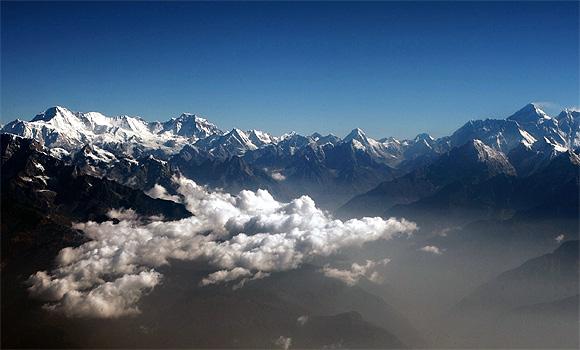
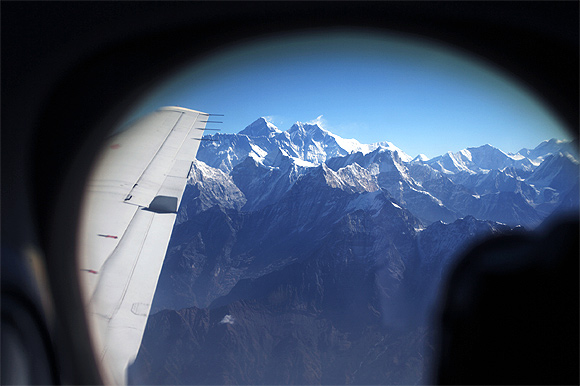
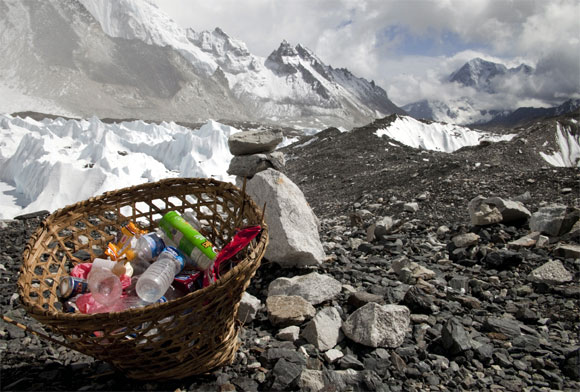
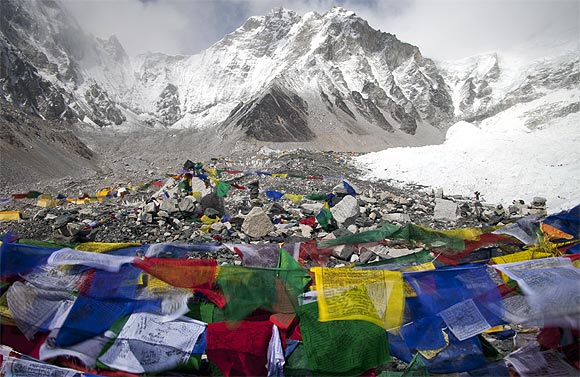
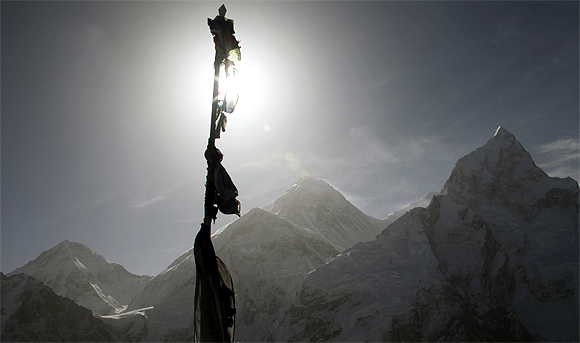

article